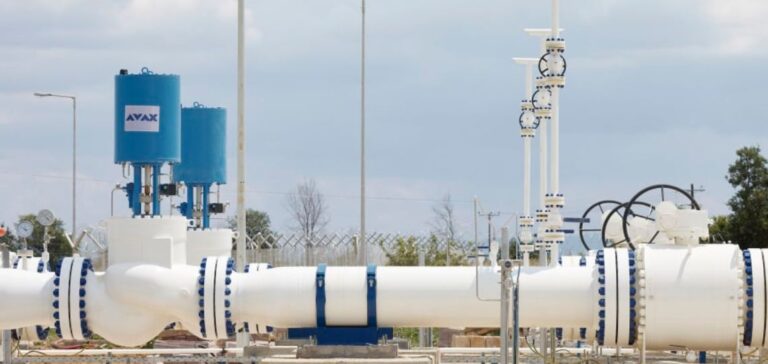In May 2024, Greece spent 52.6 million euros importing 94 million cubic meters of natural gas from Azerbaijan, a 23.5% reduction on May 2023.
Bulgaria, meanwhile, imported 44.6 million cubic meters for 24.7 million euros, down almost 9% on the 27.1 million euros spent the previous year.
Despite the constancy of import volumes, these adjustments reflect a strategy of cost optimization on the part of both countries.
Price fluctuations on international energy markets, combined with proactive management of supply contracts, have enabled Greece and Bulgaria to reduce their expenditure while securing the volumes needed to meet domestic demand.
This move is part of a wider dynamic of re-evaluating sources of supply in Europe, as countries seek to improve their energy resilience.
Comparison of gas imports between 2023 and 2024
Natural gas imports from Azerbaijan to Greece and Bulgaria are showing a downward trend in terms of costs, while keeping volumes almost unchanged.
By 2023, Greece had imported almost 2 billion cubic meters of gas for a total value of 871.9 million euros.
Over the same period, Bulgaria received more than 920 million cubic meters of gas, for a total value of 311.5 million euros.
From January to May 2024, Greek imports amounted to 461 million cubic meters for 252.3 million euros, while Bulgaria recorded 218.4 million cubic meters for 117.7 million euros.
These figures illustrate optimized management of gas imports in an increasingly competitive energy market.
The fall in costs in Bulgaria, although more moderate than that observed in Greece, underlines the flexibility offered by the new gas infrastructures put in place, such as the Greece-Bulgaria Interconnector (IGB), which enables better management of energy flows.
The role of gas infrastructures in cost adjustment
The IGB, operational since October 2022 and operated by ICGB, has played a crucial role in securing gas supplies to Bulgaria, with a contractual capacity of one billion cubic meters per year, extendable to five billion.
At the same time, the Trans Adriatic Pipeline (TAP), an integral part of the Southern Gas Corridor, has enabled Azerbaijan to ensure uninterrupted supplies to Southeast Europe, with a current capacity of ten billion cubic meters per year, extendable to twenty billion.
These infrastructures are essential not only to guarantee continuity of supply, but also to provide the flexibility needed to cope with variations in natural gas prices and requirements.
The strategic management of flows by these pipelines enables European countries such as Greece and Bulgaria to adjust their imports in line with economic conditions and immediate energy needs, while meeting energy transition objectives, particularly in terms of reducing carbon emissions.
In this context, optimizing natural gas import costs appears to be a direct response to the challenges posed by volatile energy markets and the need for European states to secure their supplies while pursuing their commitments to decarbonization.
Infrastructures such as TAP and IGB represent major strategic assets for achieving these objectives, by offering flexible and secure solutions for transporting energy in Europe.






















